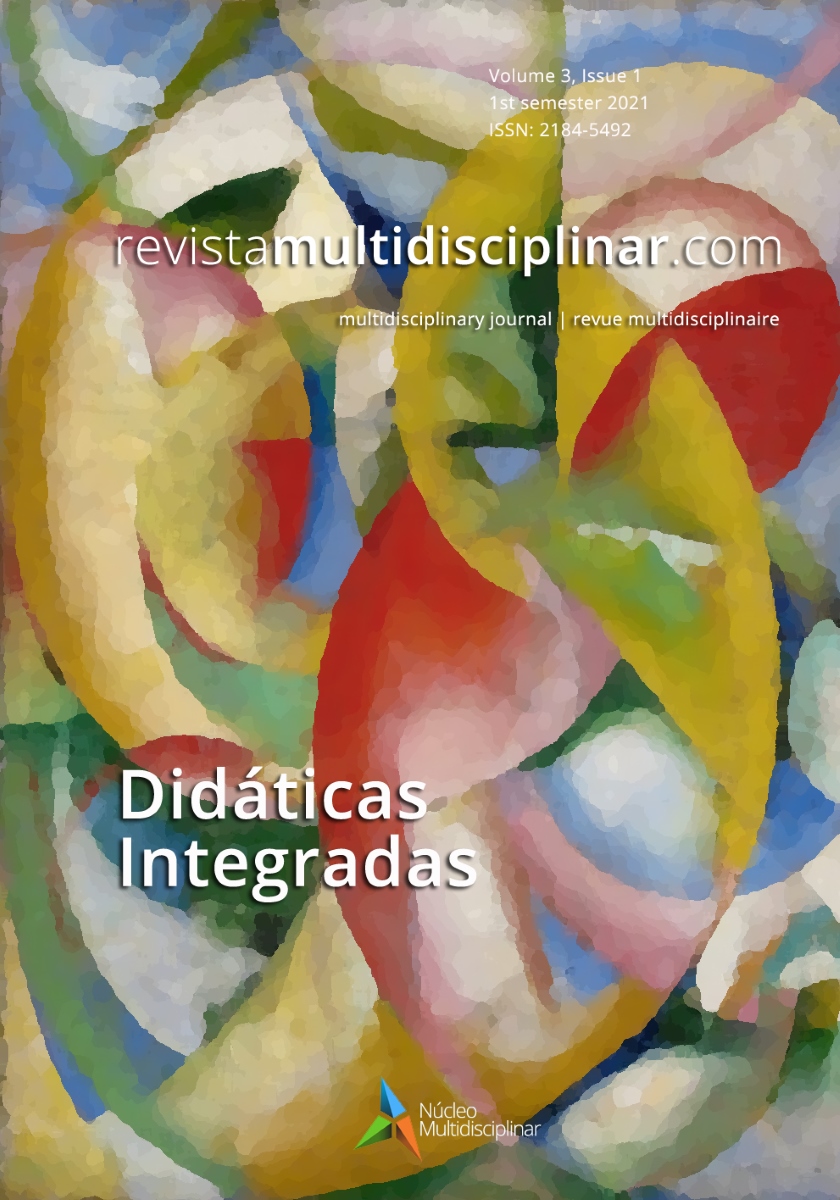Help learn math without teaching
the construction of mathematical didactic knowledge in psychopedagogy professionals
DOI:
https://doi.org/10.23882/DI2153Keywords:
didactics of mathematics, mathematical didactic knowledge, psychopedagogy, specialized knowledgeAbstract
In this article we share the basics, planning and example of a professional training course for psychopedagogy professionals in Argentina. We characterize the proposal as a mathematical workspace (Kusniak, 2011), energized by an instrumental orchestration process (Trouche, 2018) where participating professionals can build specialized knowledge (Carrillo et. al, 2013). We promote a critical and democratic reflection on the teaching and learning of mathematics (Skovsmose, 1999) and the construction of mathematical didactic knowledge in those who do not have the function of teaching this discipline in school.
References
Ball, D.L., Rowland, T., & Davis, B. (2009). Teacher knowledge and teaching: viewing a complex relationship from three perspectives. En M. Tzekaki, M. Kaldrimidou, & H. Sakonidis (Eds.) Proceedings of the 33rd Conference of the International Group for the Psychology of Mathematics Education PME 33, Thessaloniki, Greece, July 19-24, 2009 (pp. 121-150). Tesalónica, Grecia: PME.
Bednarz, N., Desgagné, S., Lebuis, P., Poirier, L., & Couture, C. (2001). L'approche collaborative de recherche en éducation: un rapport nouveau à établir entre recherche et formation. Revue des sciences de l'éducation, 27(1), 33-64.
Carrillo, J., Climent, N., Contreras L.C., & Muñoz-Catalán, M.C. (2013). Determining Specialised Knowledge for Mathematics Teaching. En B. Ubuz, C. Haser, & M.A. Mariotti (Eds.), Actas del CERME 8, 2985-2994. Antalya, Turquía.
Cols, E. (2000). La enseñanza y los profesores: metáforas, modelos y formas de enseñar. Revista del Instituto de Investigaciones en Ciencias de la Educación, IX (17), 8-22.
Kuzniak, A. (2011). L’espace de travail mathématique et ses genèses, Annales de didactique et des sciences cognitives, 16, 9-24. Strasbourg.
Mason, J. (2002). Researching your own practice. The discipline of noticing. London: Routledge Falmer.
Montes, M. A., Contreras, L.C., & Carrillo, J. (2013). Conocimiento del profesor de matemáticas: Enfoques del MKT y del MTSK. En A. Berciano, G. Gutiérrez, A. Estepa & N. Climent (Eds.), Investigación en Educación Matemática XVII, 403-410. Bilbao: SEIEM.
Sabra, H. (2016). L’étude des rapports entre documentations individuelle et collective: incidents, connaissances et ressources mathématiques. Recherches en Didactique des Mathématiques, 36(1), 49-95.
Skovsmose, O. (1999). Hacia una filosofía de la Educación Matemática Crítica. Bogotá. Una empresa docente.
Tenti Fanfani, E. (2006). El oficio del docente. Vocación, trabajo y profesión en el siglo XXI. Buenos Aires, Siglo XXI Editores Argentina.
Trouche, L. (2018). Comprender el trabajo de los docentes a través de su interacción con los recursos de su enseñanza - una historia de trayectorias. Educación Matemática, 30(3), 9-40. https://doi.org/10.24844/EM3003.01
Villella, J., Fioriti, G., Ferragina, R., Lupinacci, L., Bifano, F., & Almirón, A. (2018a). A professional development experience in Geometry for High School teachers: introducing teachers to Geometry workspaces. En P. Herbst, U. Cheah, K. Jones, & P. Richard (Eds.) International Perspectives on the teaching and learning of Geometry in secondary schools (pp. 197-214). Cham: Springer.
Villella, J., Fioriti, G., Ferragina, R., Lupinacci, L., Bifano, F., Güerci; V., Amman, S., & Almirón, A. (2018b). Puentes pedagógicos. Hacia una definición de intervención en la práctica de aula. En S. Muiños de Britos (comp.), Redes, puentes y vínculos entre la universidad y las escuelas secundarias (pp. 69-102). Buenos Aires: UNSAM edita.
Wenger, E. (1998). Communities of practice: learning, meaning, and identity. Cambridge University Press.
Downloads
Published
How to Cite
Issue
Section
License
Copyright (c) 2021 José Villella, Victoria Güerci

This work is licensed under a Creative Commons Attribution-NonCommercial 4.0 International License.









